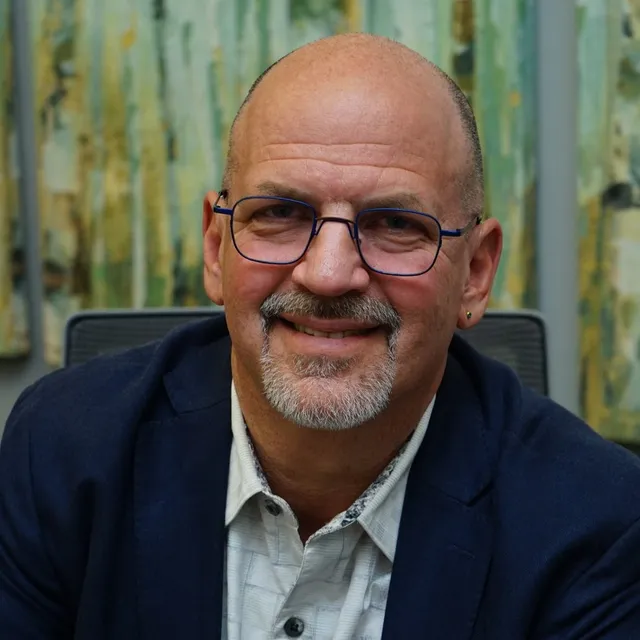When the System Stops Making Sense
Traditional mental health care often begins with a structure like diagnoses, prescriptions, and measurable outcomes. These tools can be useful, but they also shape the way we understand human suffering. They encourage us to view pain as a checklist to complete, rather than a story to explore. And for those of us who work within the system, that narrowing can begin to feel impossible to ignore.
For some of us, this awareness grows slowly. An individual doesn’t improve, despite every textbook intervention available. A deep conversation feels more healing than a diagnosis ever did. The gap between what’s needed and what’s offered starts to widen. The rules that once brought certainty now feel restrictive. This is a reckoning.
That moment doesn’t arrive with fireworks. It arrives in quiet discontent. In questions that linger. And in a sense that what we’re calling care may be missing something essential. And in that quiet, the possibility for something more human begins to emerge.
Redefining the Work
Dr. Fred Moss has spent nearly four decades as a psychiatrist, but his real work began when he started questioning the system he was trained to uphold. What began as a search for better tools led to a deeper reckoning—one that revealed how often real healing gets lost in diagnoses, protocols, and performance. At the heart of his journey is a single truth: meaningful connection heals more than medication ever could.

As the founder of Welcome to Humanity and creator of The True Voice Method, Dr. Fred now guides people back to themselves—not through labels, but through language, creativity, and honest conversation. His books, courses, and global work invite us to consider that mental health isn’t a condition to manage—it’s a human experience to meet, with presence and care.
Leaving the Comfort of Certainty
Stepping away from traditional models means stepping into the unknown. It’s no longer about what we’ve been trained to do. It becomes about what we sense is no longer working. And that shift doesn’t come easily.
From Expert to Witness
Authority often gives the illusion of security. But in true healing, we don't need to direct. We just need to be present. We start to witness rather than instruct to make space for someone else’s truth to unfold in its own time.
Challenging the Language around Mental Health
Diagnostic labels can help organize care, but they can also dilute meaning. When we over-rely on terminology, we lose the person inside the pattern. The words may be clinical, but healing is never sterile. It is deeply human.

The Cost of Compliance
There is a cost when we reward those who follow the system over those who need to challenge it. Healing doesn’t live inside a protocol. It lives in our ability to notice when someone is being flattened by the very structure meant to support them.
Relearning What Helps with Mental Health
When protocol fails, we don’t give up. We go back to what we know works: listening without agenda, slowing down enough to see the full picture, and making space for complexity. We remember what brought us into this work in the first place.
The Medicine of Expression iN Mental health
Raw and honest expression has always been part of how we heal. The kind of expression that doesn't need to make sense yet. When we make room for unfiltered truth, something shifts inside us. The weight we have been carrying starts to lighten. Maybe the words we have been holding back find their way out. The emotions we have been denying start to move. We don’t need to craft a perfect story. We simply need to allow what's real to be witnessed, even when it's messy.
Stories That Don't Fit
Not every experience is meant to be categorized. Sometimes the most important healing comes when someone finally says something they've never been allowed to say out loud. And sometimes that moment doesn't show up on a chart. These stories resist neat packaging. They spill over edges. They contradict themselves. And they don't follow the expected arc. But in their telling, something vital is reclaimed. The right to define our own reality, to name what happened to us, and to hold our truth even when others can't bear to hear it.

Language as Liberation in Mental Health
As much as words describe our experiences, they also shape them. When we use language that belongs to us, not just the system, we start to rewrite what healing can mean. The right words can unlock doors that have stayed shut for years. They can name what's been haunting us without a label. They can transform shame into clarity, and isolation into connection. Finding our own language helps us reclaim the right to define our reality on our own terms, outside the boxes others have built for us.
Letting the Body Speak
When we ignore the body, we miss half the conversation. Tension, stillness, and breath all carries data. All of it tells the story that our intellect alone can't access. The body keeps the score long after our minds have moved on. It holds memories in our muscles and trauma in our tissue. Learning to listen to these bodily whispers is essential. Because healing isn't just a mental shift. It's physical. It's cellular. And it is the slow return to a body that feels safe to live in again.

Creativity as Regulation for Mental Health
Expression regulates the nervous system. Activities like singing, painting, and journaling are access points to safety, presence, and release. When words fail, images speak. When thinking traps us, movement frees us. These creative channels bypass our conditioned defenses. They speak directly to parts of us that logical thinking can't reach. They give voice to what's been silenced, form to what's been formless, and a gentle container to what felt too big to hold. Through creativity, we don't just express our healing. We actively create it, one musical note, one brush stroke, and one word at a time.
Relationship as Repair in mental health
Healing rarely happens in isolation but through relationships and connection. And not just any relationship. One built on presence, attention, and enough safety to drop the mask. These connections are real spaces where truth can come out without judgment. Where being seen matters more than being fixed. And where the relationship itself becomes the container that makes change possible through unfiltered acceptance.

Trust That's Built, Not Assumed
Trust isn't just given because of impressive academic credentials. It is built over time. When we show up regularly, without needing someone to change to be worthy, trust starts to grow. It builds in small moments when we listen without cutting in, when we remember what's important, and when we respect how long healing takes. This trust lives in the body more than the mind. It's the subtle relaxation that comes when we realize we won't be abandoned or judged for speaking our truth. The quiet recognition that this space can hold both our strengths and struggles without demanding we perform or improve.
Boundaries That Liberate Mental Health
Setting boundaries can be one of the most challenging things in our healing journey. Maybe it is easier to look at boundaries not as walls, but as frameworks that protect truth. Frameworks that say: "You can bring all of yourself here and it will be held with care." These boundaries are invisible structures that make openness possible without doling out punishment. They define what behaviors work without defining who's acceptable. They create a clear space where messy emotions can be expressed without fear of falling apart. Where anger doesn't mean rejection. Where needs can be voiced without shame. And where personal authenticity matters more than comfort.

Repair Without Resolution
Not every break gets fixed perfectly. But the willingness to come back, to own mistakes, to try again is what starts to heal the deeper wounds. Repair doesn't mean perfection. It means refusing to let disconnection be the end of the story. It's saying "I'm still here" after the fight has passed. And it's meeting conflict with curiosity instead of defense. It's the courage to name what happened without making it smaller or bigger than it was. This repair transforms what happened from a breaking point into a turning point, from wound into wisdom.
Presence Over Performance
We don't need to act out our care to prove it's real. We need to show up, stay steady, and be willing to hold space for what isn't yet clear. And while it doesn’t mean having all the answers for what we are experiencing, it does allow for attention. It allows for bringing our full humanity to moments that might otherwise feel unbearable. It invites us to stay when everything in us wants to leave. This quality of presence appears when we stop trying to control outcomes and start trusting the natural wisdom in simply being with what is, however uncomfortable, however unfinished.
Making Room for Complexity
Mental health care has long been shaped by a desire for clarity. Diagnoses that define our challenges, treatment plans that direct our next steps, and improvements that can be measured somehow. But human beings don’t unfold in straight lines. We contradict ourselves. We grow in spirals and we carry histories that don’t always make sense, even to us. When care is reduced to symptom management, complexity is treated as a problem to be resolved instead of a reality to be held.

Making room for that complexity means resisting the urge to interpret too quickly. It means sitting with discomfort, confusion, and contradiction without needing to tie them into a narrative that makes others more comfortable. It’s an act of deep respect. A recognition that healing isn’t about simplification but about creating space where someone can be fully human without needing to edit themselves into something more acceptable.
When we lead with presence instead of prescription, something shifts. The person in front of us is no longer a case to solve but a story unfolding in real time. The goal becomes less about fixing and more about understanding. And in that understanding, we offer something rare: resonance. A space where wholeness includes the mess, the questions, and the parts that haven’t yet found language but are no less worthy of being seen.
The Courage to Be Uncertain
There is a particular bravery required to practice without the armor of certainty. The system trains us to know, to diagnose quickly, to recommend confidently, and to measure relentlessly. But real presence demands something different: the willingness to say "I don't know yet" and still remain engaged. To resist the professional reflex that reaches for answers before fully understanding the question. It is a quiet strength to prioritize truth over technique.
When we surrender the need to be the expert, something unexpected happens. The relationship itself becomes the intervention. Not the tools we've collected or the frameworks we have studied, but the simple, profound act of being with someone in their struggle without needing them to be different. This is where healing has always lived. Not in our protocols, but in our capacity to bear witness to suffering without turning away from its complexity.

The most powerful thing we can offer isn't our knowledge but our humanity. The willingness to be affected. To be changed by what we hear. To let someone's story matter enough that it reshapes how we understand not just them, but ourselves. In a system that rewards detachment, choosing connection becomes a quiet rebellion that honors the messy, nonlinear nature of what it means to heal, and what it means to help.
The TAKEAWAY
Healing doesn’t come with a template. It isn’t found in a mental health diagnosis or dictated by a protocol. It emerges slowly, in the spaces where someone feels safe enough to be fully seen. That kind of safety isn’t built through expertise but through the courage to simply be present. Through being willing to witness what hurts without trying to fix it too quickly.
What’s been missing from so many systems is listening. Deep, attuned, grounded listening. The kind that doesn’t search for answers before the story has been told. The kind that makes room for contradiction, complexity, and the realities that don’t fit inside clinical frameworks. We don’t need more ways to manage people. We need more ways to meet them.

When we stop trying to make someone fit the system, and start asking what kind of system could actually hold them, something shifts. We stop pathologizing pain and start honoring it. We stop rushing for resolution and start showing up for the truth.


